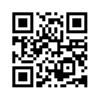Instantané/Momentané
Instantané/Momentané | Notes
L’album de famille / Anamnèse et simulacre.
Longtemps je n’ai pas pris de photographie. Aucune image de mes années de voyages. Pas même de carnet à la manière des peintres… Puis mon fils est né : il y a un avant, il y a un après. Début de l’album de famille qui de fait s’inscrit dans la continuité d’autres albums où le lien généalogique et reconnaissance du lignage, le rapport au temps et à la disparition, le « nous » des parentés et des fraternités, rejoue le récit et le continuum de la vie, relie par le truchement de logiques propres ce qui est discontinu, assemble les fragments d’une fresque distendue, réinvente la famille encore et sans cesse, et inlassablement la remet sur scène, unité de temps et de lieu. Cependant, l’album est tout autant le lieu du souvenir que du fantasme, mais pour assurer sa continuité et tenir son rôle, faire œuvre, il se doit aussi d’éluder ce qui irrite trop, ce qui ulcère certains, et pour ce faire n’hésite pas occulter, à manipuler, à réécrire l’histoire pour les besoins de la cause. L’album de famille crée du lien tout autant qu’il aliène. Il individualise et indifférencie. Il impose ses schèmes, son identité. Il pointe autant l’indéniable ressemblance que la trop forte différence, et ce avec indulgence, tendresse, ou à l’inverse avec suspicion. Toutefois, ici pas de victimes ; nous sommes les acteurs consentants de ce jeu, de cette célébration d’un « nous » inconditionnel, extasié, mythifié, mystifié ; nous élaborons cet album tout en le consultant, nous réinventons un « nous-mêmes » des ressemblances qui s’estompent, et de là nous interprétons en boucle le « nous » et le « soi » ; au risque de nous exposer à ce double tranchant des photographies qui nous remémorent à la fois ce que nous avons eu mais aussi ce que nous n’avons pas eu, et donc ce qui nous manque.
Instantaneous/Momentary | Notes
The family album / Anamnesis and simulacra.
I didn’t take any photographs for a long time. No images of my years of travel. Not even a notebook like the painters… Then my son was born: there’s a before, there’s an after. This is the beginning of the family album, which is in fact a continuation of other albums in which the genealogical link and recognition of the lineage, the relationship with time and disappearance, the ‘we’ of kinship and fraternity, re-enact the narrative and continuum of life, linking what is discontinuous by means of its own logic, assembling the fragments of a distended fresco, reinventing the family again and again, and tirelessly putting it back on stage, a unity of time and place. However, the album is as much a place of memory as of fantasy, but to ensure its continuity and fulfil its role as a work of art, it must also avoid what irritates too much, what ulcerates certain people, and to do this it does not hesitate to conceal, manipulate and rewrite history for the needs of the cause. The family album creates a bond just as much as it alienates. . It individualises and indistinguishes. It imposes its patterns, its identity. It points out the undeniable resemblance as much as the too strong difference, and this with indulgence, tenderness, or on the contrary with suspicion. However, there are no victims here; we are the willing players in this game, in this celebration of an unconditional, ecstatic, mythologised, mystified ‘us’; we create this album while we consult it, we reinvent a ‘ourselves’ of fading similarities, and from there we interpret the ‘us’ and the ‘self’ over and over again; at the risk of exposing ourselves to the double-edged sword of photographs that remind us both of what we had and of what we didn’t have, and therefore of what we’re missing.
